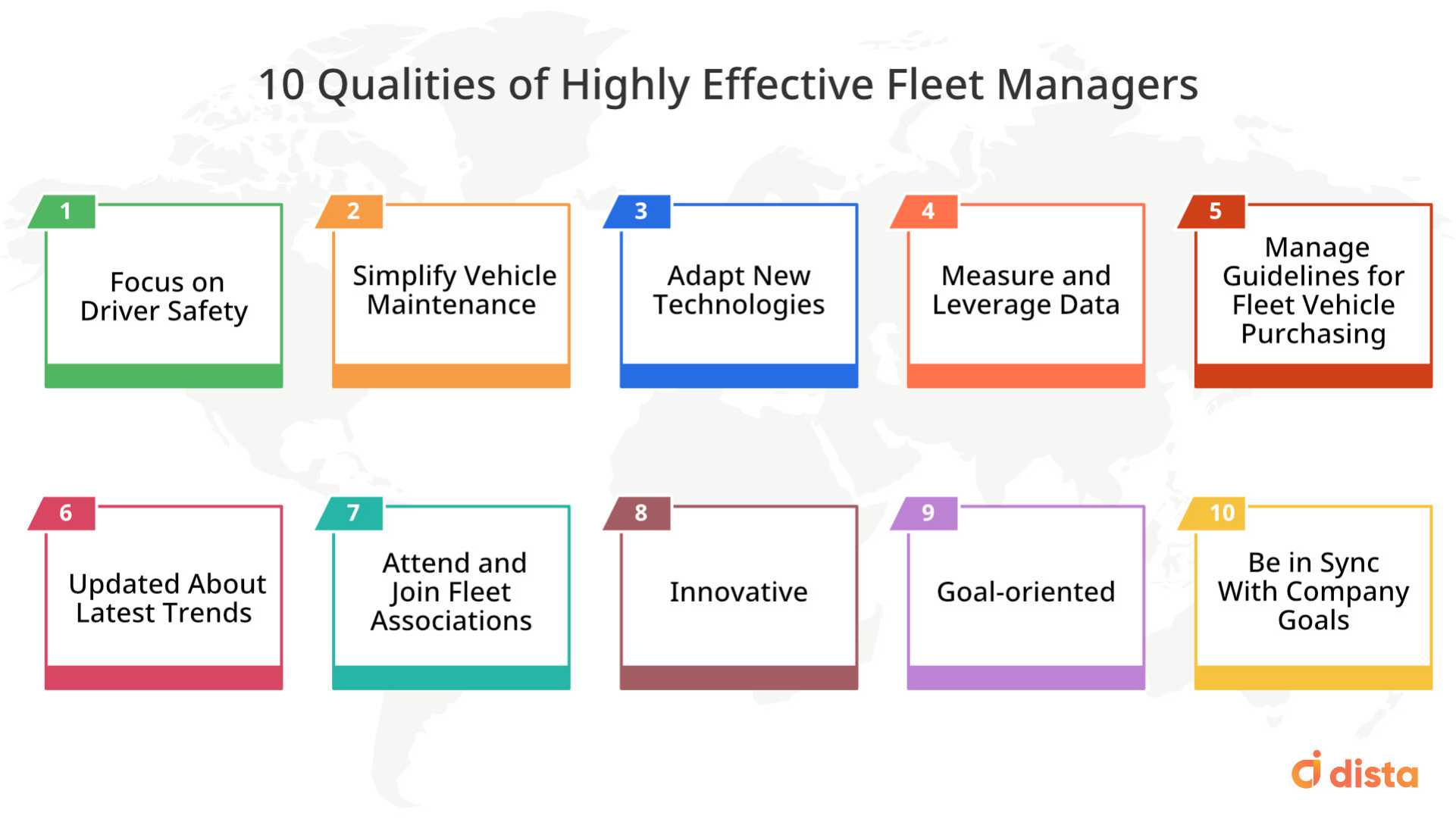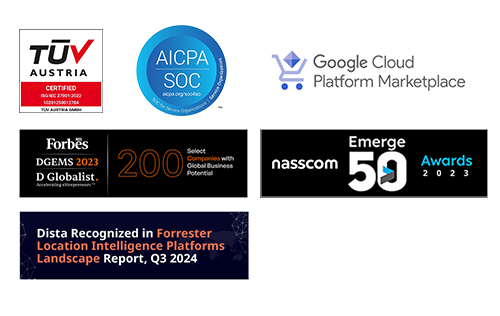The fleet management market is expected to reach nearly US$29 billion by 2030, up from the current valuation of US$10.1 billion. Fleet management helps maximize efficiency, increase productivity, and improve safety for a company’s vehicles and drivers. It is essential to have a fleet manager who can lead the fleet team and the drivers to achieve success on all the above fronts. Let’s learn more about the top qualities you should look for in a fleet manager.
Top Qualities of Highly Successful Fleet Managers

1) Focus on Driver Safety Policy
2) Simplify Vehicle Maintenance
Fleet managers should be proactive about vehicle maintenance. They need to keep track of vehicle inspection and do routine servicing and maintenance of the fleet using cloud-based fleet management software. Some apps also offer timely reminders for vehicle servicing along. They also need to train drivers about routine vehicle management.
3) Adapt to Newer Technologies
According to a report from Berg Insights, the number of commercial fleets using fleet management software is expected to grow to over 16 million by 2022. Fleet management software offers critical features like real-time vehicle tracking, vehicle maintenance alerts, route optimization, and more. A great fleet manager embraces new technologies and stays updated with new functionalities.
Also read – Top fleet management KPIs you should not miss
4) Measure and Leverage Data
5) Manage Guidelines for Fleet Vehicle Purchasing
6) Updated About Latest Trends
7) Attend Events and Join Fleet Associations
8) Innovative
9) Goal-oriented
10) Be in Sync With Company Goals
The successful fleet managers are in sync with their company’s goal and vision. They are focused on learning about fleet optimization and ensure there is no wastage. Also, they link strategic business objectives to fleet management and are customer-driven.
Great fleet managers know how to multi-task and juggle their responsibilities seamlessly. Fleet management is a dynamic field where necessary time management skills are also essential, along with various technical skills.
Are you looking for a fleet management solution? Click here for a free demo.














